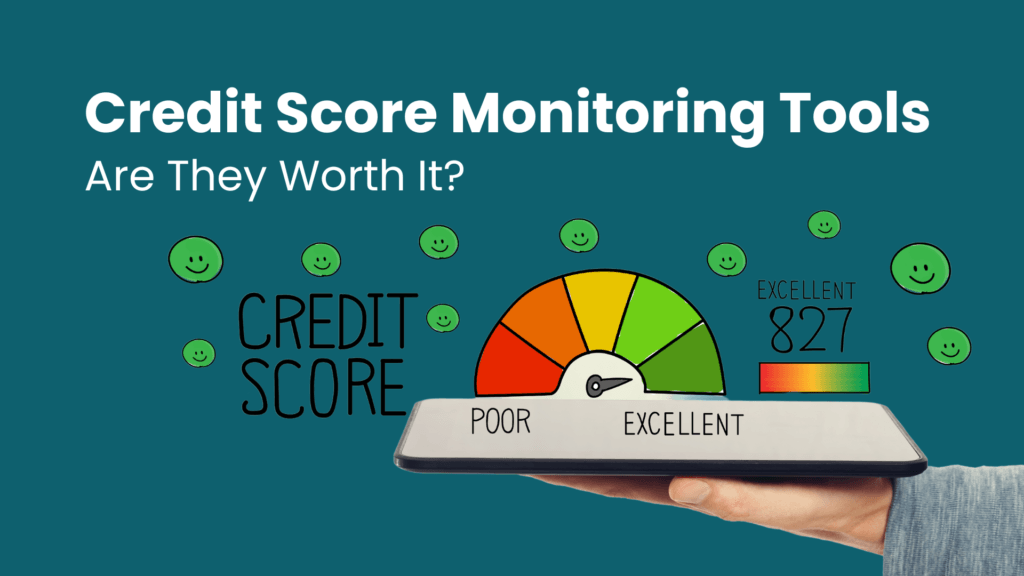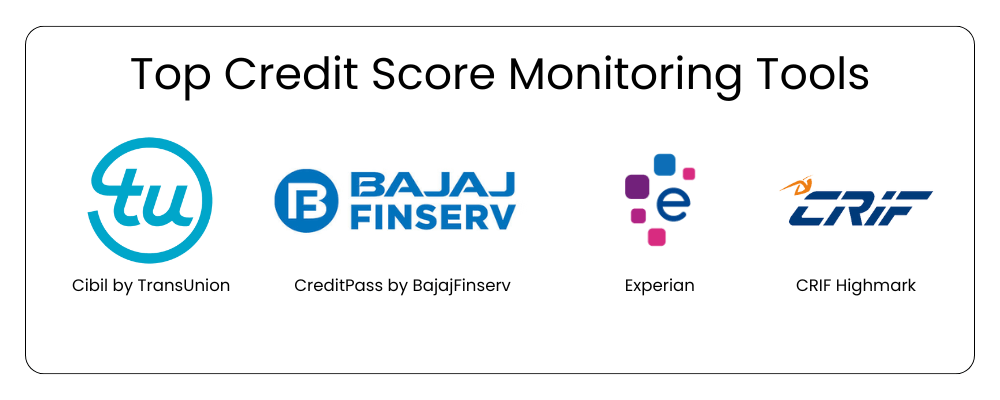

Your credit score is the gatekeeper to your financial opportunities. A robust credit score can be your best ally. It helps when you’re looking to snag a new credit card. It’s also crucial to secure a loan or even rent an apartment. The market is flooded with a plethora of credit score monitoring tools. You might be wondering if they’re really worth your time. Are they worth your money? These tools might be indispensable for managing your financial health. We’ll explore why, what they offer, and how to pick the right one.
What Are Credit Score Monitoring Tools?
Credit score monitoring tools are like financial watchdogs, keeping tabs on your credit score and report. They notify you of any significant changes. This could include a missed payment, a new credit inquiry, or signs of identity theft. Some of these tools go beyond just monitoring; they provide personalized advice to boost your score and protect against fraud.
Why Should You Monitor Your Credit Score?
Keeping an eagle eye on your credit score can significantly improve your financial well-being. It’s not just about knowing the number; it’s about understanding the opportunities it unlocks and protecting yourself from potential setbacks. Here’s why monitoring your credit score is essential:
Loan Approvals:
Your credit score is one of the first things banks and financial institutions review when evaluating loan applications. A high score demonstrates your reliability as a borrower. It makes it easier to get approval for personal loans, car loans, or home loans. More importantly, a good score often qualifies you for lower interest rates. This benefit can potentially save you thousands over the life of the loan. For instance, someone with a score of 750 or above might receive a 7% interest rate on a home loan. In contrast, someone with a lower score might be offered 10% or higher.
Credit Card Offers:
A strong credit score helps you qualify for a credit card. It also gives you access to premium cards with added benefits. These might include higher credit limits, lower interest rates, reward points, cashback, free airport lounge access, and travel insurance. For example, individuals with scores above 800 can often secure cards offering perks like 5% cashback on groceries. They may also receive air miles on every spend. Conversely, a low score might limit you to basic credit cards with fewer features.
Error Detection:
Your credit report might contain errors. These could be incorrect personal details. There might be outdated loan information or transactions that don’t belong to you. These errors can drag down your credit score without you even realizing it. Regular monitoring allows you to spot these discrepancies early and get them rectified. For example, you might notice a loan closure that hasn’t been updated or a credit inquiry that you didn’t initiate. Addressing these errors promptly can give your credit score an instant boost.
Fraud Alerts:
Identity theft and fraud are on the rise, making credit monitoring more critical than ever. Fraudsters can open accounts, take loans, or make large purchases in your name, severely damaging your credit score. Credit score monitoring tools provide real-time alerts for unusual activity, enabling you to act quickly. For instance, if someone tries to apply for a loan using your details, you’d receive an alert. You could report it to the authorities before any significant damage is done. This proactive approach can save you from months of hassle trying to repair your credit.
By regularly monitoring your credit score, you stay informed, prepared, and in control of your financial future.
Popular Credit Score Monitoring Tools
Here’s a quick rundown on some leading tools in India:
CIBIL by TransUnion:
Known for its detailed credit reports, widely recognized by financial institutions.
Experian:
A name you can trust globally, offering monitoring along with financial wellness tips.
CRIF Highmark:
Provides credit health checks for both individuals and businesses.
Equifax:
Offers comprehensive reports with a strong focus on fraud detection.
Bajaj Finserv Credit Pass:
User-friendly with extra financial insights.


Are Credit Score Monitoring Tools Worth It?
Advantages:
Convenience: Automatic updates mean no more manual checks.
Proactive Alerts: Stay ahead by knowing when your credit activity changes.
Credit Improvement Tips: Personalized advice can guide you to a better score.
Drawbacks:
Cost: Subscription fees can add up, not ideal for everyone’s wallet.
Limited Scope: Some tools only cover one credit bureau.
Data Privacy: There’s always a risk when sharing your financial details online.
Free vs. Paid Credit Score Monitoring Tools
Free Tools: Platforms like Paytm give you basic score checks but might skimp on details.
Paid Tools: Services like Experian or Equifax offer deep dives into your credit health, fraud alerts, and identity protection.
How to Choose the Right Tool
- Look for tools that pull reports from multiple bureaus.
- Essential features should include real-time alerts, fraud detection, and error correction.
- Check user reviews for real-world reliability and usability.
- Evaluate the cost against what you get in return.
When Should You Consider Investing in a Monitoring Tool?
- If you’re about to make a big financial move like buying property or a vehicle.
- If you’ve noticed or suspect errors or fraud in your credit history.
- If you want ongoing, expert advice to enhance your credit score.
Practical Tips to Maintain a Good Credit Score
- Always pay your EMIs and bills on time.
- Keep your credit usage low – ideally below 30% of your limit.
- Don’t apply for too many loans or cards in a short period.
- Review your credit report bi-annually for any discrepancies.
Conclusion:
Credit score monitoring tools can be a powerful ally in managing your financial well-being. They offer timely insights, protect against fraud, and can guide you towards better financial decisions. However, their value largely depends on your personal financial habits and needs. Regular monitoring and sound financial practices are the bedrock of a healthy credit score.
Would you use a credit score monitoring tool? Share your thoughts in the comments!




